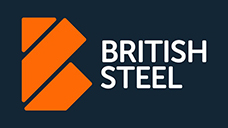Controversial Bidder for British Steel Emerges as Frontrunner

Need buying strategies for steel? Request your two-month free trial of MetalMiner’s Outlook
After reporting on the group entering into the Official Receiver’s hands in the spring we have been following its ups and downs in the expectation that eventually the most likely bidder would be Britain’s largest steel producer, Liberty House, owned by steel entrepreneur Sanjeev Gupta. The group already owns several other steel assets in the U.K. and mainland Europe.
While Liberty House appeared to be the frontrunner, it seems to have been sidelined in favor of a more controversial bidder: Turkish pension fund Oyak.
The bidder is controversial because Oyak oversees the Turkish military’s $15 billion pension fund. While Turkey was seen as a key NATO ally of the west a decade ago, it has slipped into increasingly nationalistic and antagonistic rhetoric under autocratic leader Recep Tayyip Erdoğan. Clearly, Oyak will be close to both the military in Turkey and the government of President Erdoğan, and has come under criticism from labor unions back home in Turkey.
Oyak recently closed Chemson, a Wallsend-based firm that makes additives used in the production of PVC plastic, moving production to Austria and Turkey at a loss of 64 jobs.
Last week, it announced it would cease production at the site by the end of September, the Guardian reported, raising fears that a successful bid for British Steel could likewise be followed by a hollowing out of jobs as the new owners drive for profits.
But are such fears well-founded?
British Steel has struggled to make a profit and is badly in need of further investment if it is to survive. Indeed, the reason Oyak is preferred over Liberty is the latter has been quite clear that it would close one of Scunthorpe’s blast furnaces and use metal from another of its steel mills in Yorkshire, with the loss of many more jobs than the few hundred Oyak proposes.
Oyak, on the other hand, is looking to raise production. Last year, Scunthorpe produced 2.8 million tons, but the new buyer has plans to raise production to 3 million tons and, eventually, 3.2 million tons, according to the Financial Times. It also intends to dramatically improve productivity, said to be woefully poor by European standards.
Oyak is not new to steelmaking. The fund owns 49.3% of Turkey’s largest steelmaker, Erdemir, as well as a sprawling range of mining and manufacturing assets ramging from automotive to cement (in addition to steel).
Oyak’s plans for British Steel are a double-edged sword.
On the one hand, it wants to preserve and indeed expand production, which will find widespread support in the U.K.
On the other hand, it is coming cap in hand to the British government looking for contributions to improve the steelmaker’s carbon footprint.
The plan is to move from coal to gas-powered blast furnaces and eventually — and most controversially, because it has not been done at scale before — to hydrogen, taking the company to a near-zero carbon footprint.
Oyak said it plans to invest some £900 million in the plant (although over what time frame that investment will come is unclear), but a figure of £300 million from the government has been reported as the sum it is looking for.
MetalMiner’s Annual Outlook provides 2019 buying strategies for carbon steel
Why Oyak is planning to do this in the U.K. and not at home with Erdemir is a question; the cynic would suggest it know the economics of such a move are shaky but believes the British government may be more up for taking a punt than the authorities back home.
At present, any contribution would have to be on the basis of commercial loans if the U.K. is to avoid falling afoul of E.U. subsidy legislation — although whether the U.K. would be subject to that post-Brexit remains to be seen.


Leave a Reply